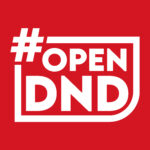What Have We Learned from #OpenDnD

January 2023 was a rough year for the TTRPG industry. 5e developers found ourselves dividing our time between protesting and planning for a nebulous future. When WotC finally waved the CC-BY white flag, we celebrated like the end of Return of the Jedi. But experience doesn’t make you wiser. It makes you older. Learning from experience makes you wiser. So how can we gain XP from this experience to level up?
D&D is HUGE
If this had happened fifteen years ago, nobody would have noticed, and nobody would have cared. In fact, it did when WotC released D&D 4th Edition with a GSL instead of an OGL in 2008. That led to the release of Pathfinder. But nobody outside the TTRPG community had any idea. But thanks to the success of Fifth Edition, D&D has firmly entrenched itself in the mainstream consciousness. As a result, mainstream news and financial analysts took notice, and the final nail in the OGL 1.2 coffin may have come from Alta Fox Capital, Hasbro’s largest investors, who recognize the size and value of the fanbase. The upcoming movie and TV show could never have had their big budgets without the size of the 5e fanbase. We are legion.
D&D ≠ WotC
I’ve said it often. Mike Shae says it so often, he should trademark it. And it’s 100% true. WotC isn’t D&D. WotC owns the D&D trademark, but they don’t own the game. D&D is more than a fancy ampersand — it’s a global community of 50 million TTRPG players who play 5e more than anything else, but we also play many other systems. But even in the 5e community, we don’t need WotC. We can either start with the free Basic Rules or another 5e-based game and develop our own content for it or purchase high quality content from over 8500 options.
But even at the height of these shenanigans, we knew that they couldn’t take our books away, and no matter what changes they make in the future, we’ll just keep on playing what we want to play. And if they intend to replace book releases with microtransaction-based digital content and slap the ampersand on it, they can do that, but they don’t get to define what D&D is. Every table, whether stone, formica, or VTT, decides what D&D is for them, even if there’s no ampersand to be found on any of your resources. And you don’t have to buy their latest products or update to new editions if you don’t want to!
The players are heroes too, not just the characters
When the community learned of the plot to wipe out other 5e creators, we rolled initiative. In 8 hours, a Discord assembling to defend the OGL had 500 members, and at its peak, it had about 1700 sharing information, writing letters to Hasbro, WotC, the EFF, the FTC, and more. 77,407 people signed a petition. YouTube and every social media platform came alive with reports and shared information so powerful, it crashed D&D Beyond with a flood of 40,000 unsubscriptions. OSR and 5e fans set aside their edition preferences to take up arms together. We fought. We fought hard. It was exhausting. But we won. You don’t just play a hero. You are a hero. Don’t ever think you’re not.
Trust the action economy
According to the cliché, it’s always darkest right before the dawn, and in this case, that was true. Many believed the battle was lost, and we all planned our contingencies, when WotC suddenly dropped their treasure and fled. They made the mistake of trying to slip legal shenanigans past Rules Lawyers, a group of people who scrutinize word usage as a hobby. They presented a seemingly unstoppable force to people who strategize ways to overcome impossible odds for a living.
We challenge the schemes of dragons and archdevils for fun! WotC, did you really think you were more powerful than that?!
No single player had the power to defeat this BBEG ourselves. But the most powerful among us, bards like Linda Codega, Ginny Di, and Indestructoboy, were only as powerful as those they inspired. The true power came from the action economy, the 5e principle that multiple weaker actors can defeat a more powerful being based on the number of actions each can take in a given round, which is why multiple monsters multiply the XP in an encounter. We continued to act while they struggled to move.
5e is the final version of D&D
OneD&D was already touted as the final unifying version of D&D, which seems like a bold claim, but this event may have solidified that, yet not in the way WotC intended. Instead of unifying around WotC products, including their online strategy, by releasing SRD 5.1 into Creative Commons, an entire industry of creators can keep making 5e content forever, modifying, tweaking, expanding, or pantomiming, and while system overhauls are inevitable, the 5e flywheel’s momentum is seemingly unstoppable.
Unless we have a reason to unite against it.